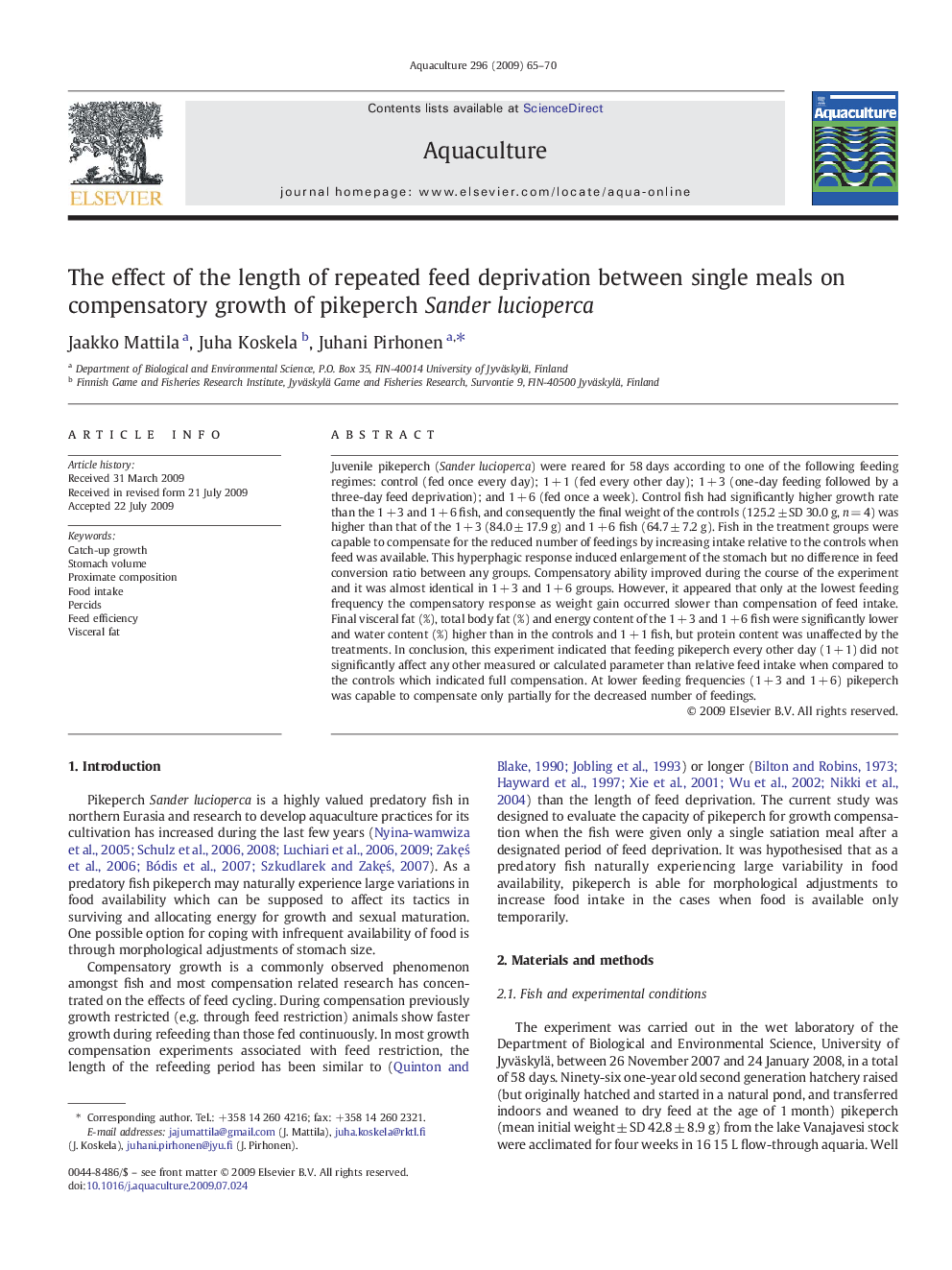| Article ID | Journal | Published Year | Pages | File Type |
|---|---|---|---|---|
| 2423882 | Aquaculture | 2009 | 6 Pages |
Abstract
Juvenile pikeperch (Sander lucioperca) were reared for 58 days according to one of the following feeding regimes: control (fed once every day); 1 + 1 (fed every other day); 1 + 3 (one-day feeding followed by a three-day feed deprivation); and 1 + 6 (fed once a week). Control fish had significantly higher growth rate than the 1 + 3 and 1 + 6 fish, and consequently the final weight of the controls (125.2 ± SD 30.0 g, n = 4) was higher than that of the 1 + 3 (84.0 ± 17.9 g) and 1 + 6 fish (64.7 ± 7.2 g). Fish in the treatment groups were capable to compensate for the reduced number of feedings by increasing intake relative to the controls when feed was available. This hyperphagic response induced enlargement of the stomach but no difference in feed conversion ratio between any groups. Compensatory ability improved during the course of the experiment and it was almost identical in 1 + 3 and 1 + 6 groups. However, it appeared that only at the lowest feeding frequency the compensatory response as weight gain occurred slower than compensation of feed intake. Final visceral fat (%), total body fat (%) and energy content of the 1 + 3 and 1 + 6 fish were significantly lower and water content (%) higher than in the controls and 1 + 1 fish, but protein content was unaffected by the treatments. In conclusion, this experiment indicated that feeding pikeperch every other day (1 + 1) did not significantly affect any other measured or calculated parameter than relative feed intake when compared to the controls which indicated full compensation. At lower feeding frequencies (1 + 3 and 1 + 6) pikeperch was capable to compensate only partially for the decreased number of feedings.
Related Topics
Life Sciences
Agricultural and Biological Sciences
Aquatic Science
Authors
Jaakko Mattila, Juha Koskela, Juhani Pirhonen,
